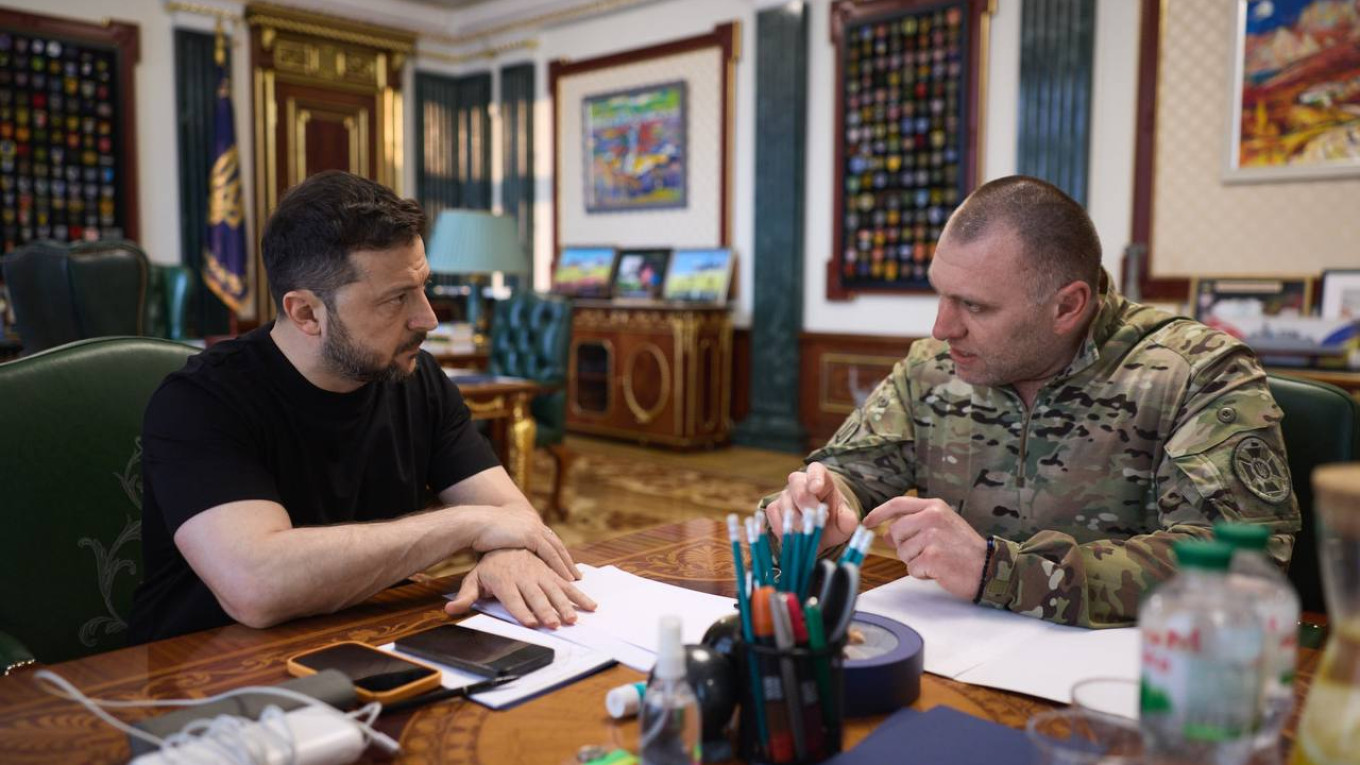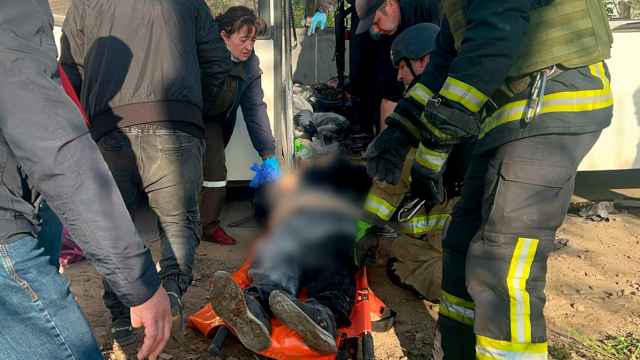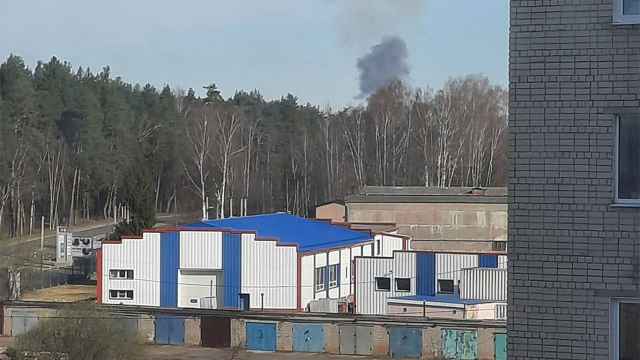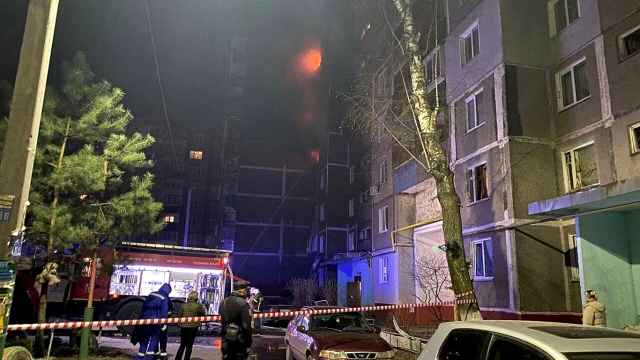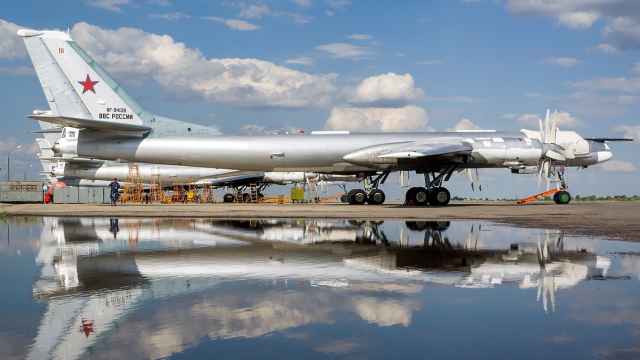Ukrainian security services conducted a massive drone attack against Russian military airbases on Sunday, striking thousands of kilometers from the front line in what President Volodymyr Zelensky said was their longest-range operation ever.
The operation, code-named "Spider's Web," required months of preparation and the smuggling of drones into Russian territory.
Here is what we know about the attacks, which occurred on the eve of talks in Istanbul between Russia and Ukraine to explore the prospects for a ceasefire:
What has Russia lost?
Ukraine has claimed to have caused significant damage. But for now, the extent of it impossible to verify independently.
A source in Ukraine's SBU security service said the coordinated attacks hit 41 aircraft used to "bomb Ukrainian cities," citing the Tu-95 and Tu-22 strategic bombers and the A-50 radar detection and command aircraft.
If confirmed, the biggest prize for Kyiv could be damaging an A-50, which Russia uses to coordinate its fighter jets and detect Ukrainian air defense missiles.
Fewer than 10 of these aircraft are thought to be in service. This would be the third that Russia has lost since the full-scale invasion of Ukraine, with two more having been shot down with surface-to-air missiles by Ukraine in early 2024.
Russia no longer produces the Tu-95MS or Tu-22 M3 planes thought to be among those set on fire. Along with the Tu-160, these long-range bombers are capable of carrying 16 cruise missiles capable of flying over 2,000 kilometers.
Missiles are posing a particular problem for Ukrainian air defense, which failed to intercept any of the nine missiles launched against the country on the night of May 24. Because of their speed and maneuverability, they can only be shot down with missiles from the U.S.-made Patriot or Franco-Italian SAMP-T systems.
Ukraine ran out of SAMP-T missiles by the end of May. Kyiv has requested more patriot missiles from Washington, which Secretary of State Marco Rubio said “frankly, we don’t have.”
Washington is encouraging other countries to donate their Patriot batteries and missiles to Ukraine. On May 10, they gave Germany the green light to transfer 100 air defense missiles from their own stocks.
But many European countries are reluctant to give up equipment that they may otherwise need for their own defense and cannot replace easily. Manufacturer Raytheon can only produce 12 Patriot batteries a year, as well as 740 interceptor missiles when combined with output from Lockheed Martin.
Russia's Defense Ministry confirmed that "several aircraft caught fire" following a drone attack at bases in the regions of Murmansk in the Russian Arctic and and Irkutsk in eastern Siberia.
The fires were contained, the ministry said, and caused no casualties, adding that suspects had been "arrested."
Ukrainian security services said they destroyed 34% of Russian strategic bombers carrying cruise missiles, claiming to have inflicted damages amounting to $7 billion.
Modus operandi
The "Spider's Web" operation was prepared for over a year and a half, the Ukrainian SBU source said, adding that it had required particularly complex logistics.
Ukraine regularly launches drones to strike targets in Russia in response to the Russian invasion of 2022, but the modus operandi used this time was different.
The Ukrainian security source said drones had been smuggled into Russia and hidden in wooden structures installed on trucks.
The structures' roofs were then opened remotely to let the drones fly toward their targets.
Photos shared by the SBU show numerous small black drones hidden in what appears to be transport containers.
Russia's Defense Ministry confirmed that the drones were not launched from Ukrainian territory but "in the immediate vicinity of the airbases."
Longest-range ever
Zelensky on Sunday hailed the operation's "brilliant" results in what he called "our most long-range operation" in more than three years of war.
Using 117 drones, Ukraine was able to reach regions thousands of kilometers from the front, when its attacks generally focus on areas close to its borders.
Two of the airbases Ukraine said it had hit, Olenya and Belaya, are around 1,900 kilometers and 4,300 kilometers from Ukraine. The first is located in the Russian Arctic, the other in eastern Siberia.
Russia's Defense Ministry said it successfully countered other attacks in the regions of Ivanovo and Ryazan, as well as in Amur near the border with China.
Consequence and symbolism
The consequences of the attacks on Russian military capabilities are difficult to estimate at this stage.
Ukraine suffers from almost daily air attacks that have strained its air defense capabilities in recent weeks.
Russian military bloggers lamented a "black day for aviation" after the Ukrainian attack.
Rybar, a Telegram account close to the Russian military, called it a "very heavy blow" and pointed to what it called "serious errors" by Russian intelligence.
Pasi Paroinen, a military analyst with the Finnish Black Bird Group OSINT service, said the attack’s success showed that Russia had failed to harden its air bases against air attacks, such as constructing fortified hangars.
But the symbolic significance is important for Ukraine, whose army has been facing setbacks on the front.
Katarzyna Zysk, a professor of international relations and contemporary history at the Norwegian Defense Academy, highlighted the attack's timing ahead of the talks in Istanbul.
"Ukraine understands that the only way to compel Putin to take negotiations seriously is from a position of strength, when he has no choice but to do so," Zysk told The Moscow Times. "When Russia was gaining ground on the battlefield, Putin repeatedly dismissed the idea of negotiating, questioning why he would want to. Highlighting Russia’s weaknesses and vulnerabilities may influence the negotiation dynamics and strengthen its leverage at the negotiating table."
It also signals that Ukraine can take out valuable Russian military assets, a capability likely to prove more effective at compelling Russia to engage in peace talks than the Trump administration’s soft diplomatic approach, she added.
Dan Lomas, a senior lecturer in intelligence and security studies at the University of Nottingham, told The Moscow Times that the attacks would sow paranoia among Russia’s security services.
“Ukraine’s intelligence agencies have the skills, determination and — more importantly — the ability to strike across Russia, and increased success only builds on that paranoia. Where next, and how are they able to operate within Russia, embarrassing the FSB and other internal security apparatus? And the paranoia is a steady drip, drip effect that's hard to get over long term,” he said.
“There is an endless list of targets for Ukraine, whereas the FSB needs to be successful all the time in protecting targets. Ukraine has been able to attack anything from individuals to now parts of Russia's strategic forces. The paranoia and psychological aspect for the FSB is, 'What’s next?'”
AFP contributed reporting.
A Message from The Moscow Times:
Dear readers,
We are facing unprecedented challenges. Russia's Prosecutor General's Office has designated The Moscow Times as an "undesirable" organization, criminalizing our work and putting our staff at risk of prosecution. This follows our earlier unjust labeling as a "foreign agent."
These actions are direct attempts to silence independent journalism in Russia. The authorities claim our work "discredits the decisions of the Russian leadership." We see things differently: we strive to provide accurate, unbiased reporting on Russia.
We, the journalists of The Moscow Times, refuse to be silenced. But to continue our work, we need your help.
Your support, no matter how small, makes a world of difference. If you can, please support us monthly starting from just $2. It's quick to set up, and every contribution makes a significant impact.
By supporting The Moscow Times, you're defending open, independent journalism in the face of repression. Thank you for standing with us.
Remind me later.



